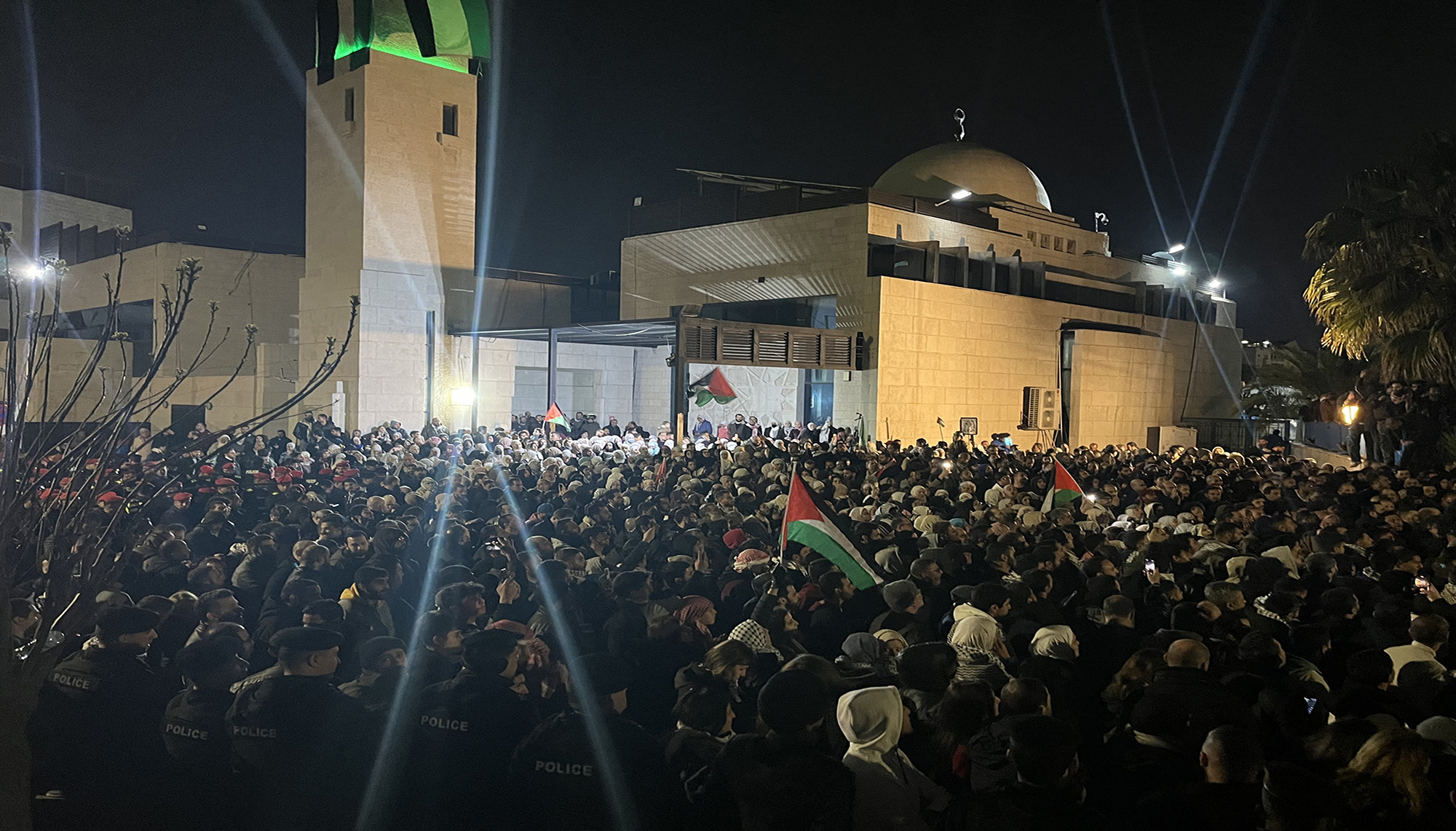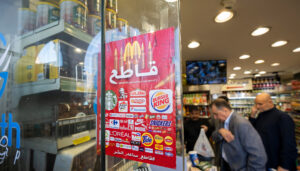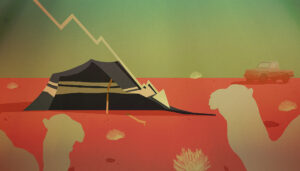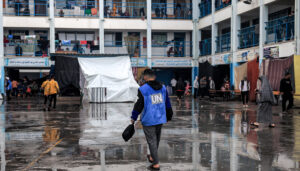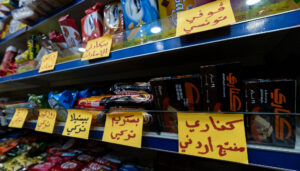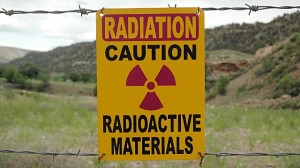 By
Zeina Hakim & Omar Qubain
By
Zeina Hakim & Omar Qubain
Greenpeace Jordan
In the poorest nations of the world, French nuclear giant AREVA is extracting precious—and deadly—natural resources, earning billions for its Fortune 500 corporation while the people pay the price.
The French mining company AREVA will be in charge of the Kingdom’s commercial uranium mining activities. AREVA will be operating in Swaqa, Khan Azzabib, Wadi Maghar and Attarat areas. The company is planning on digging an open-pit mine for the milling, crushing, extraction, precipitation and converting of uranium ore.
AREVA has a shameful environmental record:
The company has had a presence in Niger for 40 years. And ever since its mining operation, poverty has been amplified through years of environmental destruction.
A Greenpeace team visited AREVA’s two uranium mines (Arlit and Akokanin) in Niger at the beginning of November 2009. The team carried various soil, water and air tests around the mines as well as in mining villages, located several kilometers away and home to 80,000 people. These tests were studied in collaboration with the France-based Research and Independent Information on Radioactivity Commission (CRIIRAD) and Niger’s Network of Organizations for Transparency and Budgetary Analysis (ROTAB).
The findings identify dangerous levels of radiation in the streets of Akokan, at one location up to 500 times higher than the normal background levels. Initially AREVA had declared the streets safe!
Furthermore, abnormal concentrations of uranium in the soil, as well as of radon, a radioactive natural gas have been detected in the air. “Radioactive scrap metal” from the mines was also available at local markets. In four of the five water samples that Greenpeace collected in the Arlit region, the uranium concentration was above the World Health Organization recommended limit for drinking water.
Also Watch: Left in the Dust: Uranium Mining in Niger
Radio What?
Exposure to radioactivity can cause respiratory problems, birth defects, leukemia and cancer. Disease and poor health abound in this region, and death rates linked to respiratory problems are twice that of the rest of the country. Yet AREVA has failed to take responsibility by not conducting a full independent study around the mines and mining towns in Niger followed by a thorough clean up and decontamination. Local people have not been educated about the risks associated with radioactive materials and we’ve heard reports that people don’t even know what “radioactive” means. In fact, AREVA’S company-controlled hospitals have actually been accused of misdiagnosing cases of cancer and HIV. Read the full report.
If this isn’t bad enough, they also claim there has never been one case of cancer attributed to mining in 40 years. The small missing detail of this claim is that the local hospitals did not have occupational doctors until very recently, making it impossible for someone to be diagnosed with a work-related illness.
Following Greenpeace’s report of radioactive hotspots in the uranium-mining city Akokan in Niger, AREVA has confirmed that the radioactivity in the streets of Akokan was unacceptably high. This scandal demonstrates again that the nuclear industry is a threat to the environment.
AREVA currently has activities in over 100 countries and aggressively pushes nuclear energy in new markets globally. Its PR teams work overtime to convince governments, investors and the general public that nuclear energy is now a safe, clean, and ’green’ technology. The Jordanian government has not been spared from AREVA’s propaganda. While the nuclear industry is trying to have us believe that the waste can be cleaned up, buried under some mountain and forgotten for a few thousand years or that the plants generating energy with deadly waste are safe, they are covering up the deadly effects acquiring the fuel that nuclear energy requires.
Jordan’s Case:
Dr. Nedal Zoubi, the Nuclear Fuel Cycle Commissioner at the Jordan Atomic Energy Commission and the former Director General of Jordan Energy Resources Inc. (the Jordanian company in charge of exploring and mining uranium) underlined the fact that the “amounts of uranium in Jordan cannot be classified as uranium reserves by international standards”. Additionally he pointed out that, due to the low concentrations of uranium, the cost of production, at 130 dollars per kilo, will be above international prices. Furthermore, Dr. Zoubi exposed the fact that, although 85% of the samples taken from the central region, measured by the JAEC, showed uranium concentrations of less than 60ppm. In the so-called reserves concentration are overstated at 550ppm.
With such small quantities of low-grade uranium it wouldn’t by any stretch be economically viable to mine and extract this resource. All financial indicators prove that the value of uranium wouldn’t come close to pay off any part of the planned nuclear reactor as claimed. The mine is estimated to cost six hundred million dollars with annual deficits of millions of dollars in operation costs.
Major concerns that undermine the very legitimacy of this undertaking lie on every corner. There is no doubt that AREVA and our government are aware of most of the issues outlined. The people have every right to question this doubtful enterprise. We call on the Jordanian government and officials involved to address theses unanswered question before any further steps are taken towards realizing this risky venture.
AREVA cannot be trusted to operate in the Kingdom. Its presence will undoubtedly pose serious threats to the people and environment.
Say NO to Nuclear Energy! Say NO to AREVA!
For more information




